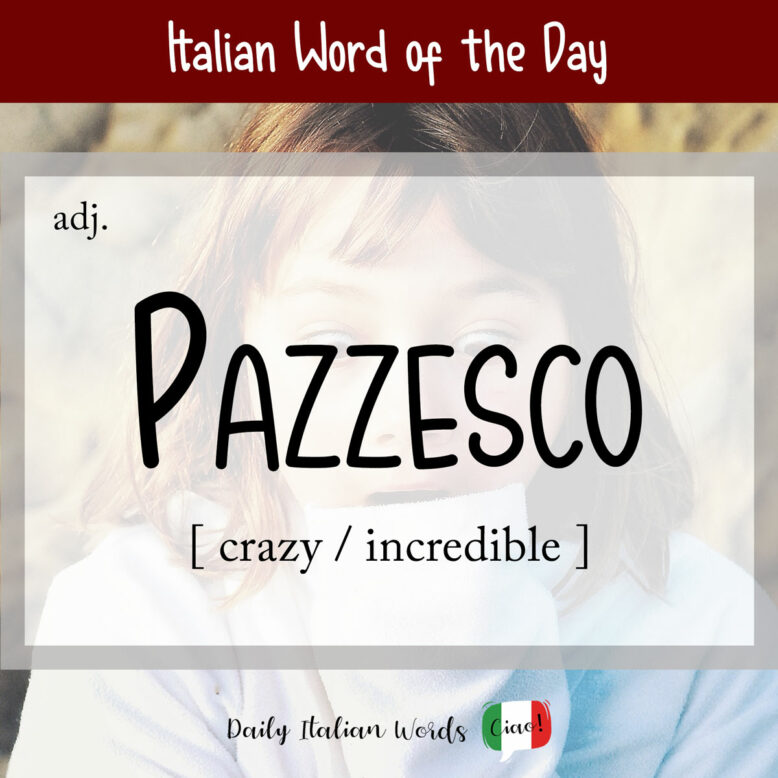Did you recently see or hear something that completely blew your mind? If so, you could use the Italian adjective pazzesco to describe it!
The feminine and plural forms of pazzesco are as follows:
- pazzesca = feminine, singular
- pazzeschi = masculine, plural
- pazzesche = feminine, plural
Learn with our video

Pazzo vs pazzesco: what’s the difference?
Pazzesco derives from the adjective pazzo which means crazy or insane. The way in which pazzesco differs from pazzo is as follows.
Pazzo is used to define a person’s behaviour or state of mind (e.g. un uomo pazzo = a crazy man). It may also refer to something that is typical of a crazy person (e.g. un’idea pazza = a crazy idea).
Pazzesco can denote something senseless or absurd just like pazzo (e.g. un piano pazzesco = a crazy plan). However, it may also refer to something exaggerated or over the top as in the following common examples:
– fare un freddo / caldo pazzesco = to be terribly cold / hot
– avere una fame / sete pazzesca = to be terribly hungry / thirsty
– fare una fatica pazzesca = to work really hard, to make a big effort
È arrivato alla festa con un ritardo pazzesco!
He arrived at the party incredibly late!

In a positive sense, pazzesco colloquially refers to something incredible or amazing (e.g. un concerto pazzesco = an amazing concert).
Il nuovo brano di Elisa è pazzesco! Potrei ascoltarlo tutto il giorno senza mai stufarmi!
The new song by Elisa is amazing! I could listen to it all day and never get tired of it!
In colloquial Italian, you will often hear the exclamation Ma è pazzesco! (It’s crazy! It’s ridiculous!) in relation to things that are surprising, amazing or ridiculous. You can also use Pazzesco! on its own.
Ma è pazzesco! Il pilota ha finito il gran premio su tre ruote!
That’s crazy! The driver finished the grand prix on three wheels!

This article is also available in video format on our YouTube channel. The audio version can be found on Podbean, Google Podcast, Apple Podcast and Spotify.
Heather Broster is a graduate with honours in linguistics from the University of Western Ontario. She is an aspiring polyglot, proficient in English and Italian, as well as Japanese, Welsh, and French to varying degrees of fluency. Originally from Toronto, Heather has resided in various countries, notably Italy for a period of six years. Her primary focus lies in the fields of language acquisition, education, and bilingual instruction.


